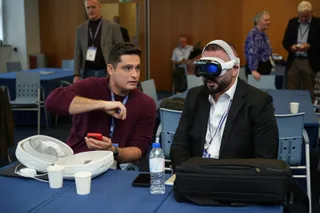Congressional Winds of Change for US Aviation Community
Contact Our Team
For more information about how Halldale can add value to your marketing and promotional campaigns or to discuss event exhibitor and sponsorship opportunities, contact our team to find out more
The Americas -
holly.foster@halldale.com
Rest of World -
jeremy@halldale.com

The November 2024 US national elections are history. The contests for the presidency, and most US Senate and House of Representatives offices have been decided. And while Donald Trump will not be sworn in as president and the new Congress not seated until this January, change is on the horizon at the executive branch level and more certainly, and on congressional committees with oversight on the US aviation community.
The Republican party gained a trifecta in the recent election by winning the White House and a majority of seats in the Senate and House, and by extension, control of the Senate Committee on Commerce, Science and Transportation and House Transportation and Infrastructure Committee.
CAT has observed a genuine bi-partisan mindset in the current Congress as lawmakers on both sides of the aisle set politics aside on most issues to advance aviation topics of relevance to our editorial and companion events – from safety to training to workforce issues.
Yet, when the gavels sound the opening of the new Congress this January, key members on the current committees with an interest and expertise in advancing aviation safety will have departed or changed leadership roles. It is expected Senator Ted Cruz (Texas) will be elevated to Chairman of the Senate Committee on Commerce, Science and Transportation. Of two senators in the current Congress who vigorously supported changes to the US 1,500-hour rule for pilots, one may have an outsize role on the topic. While Senator Kyrsten Sinema (Arizona) did not seek reelection, Senator John Thune (South Dakota) has been elevated to Senate Majority Leader. Senate advocates for maintaining the status quo to the rule, including Senator Tammy Duckworth (Illinois), will return this January.
The House Transportation and Infrastructure Committee’s Aviation Subcommittee will lose a pragmatic, knowledgeable chairman with the departure of Rep. Garrett Graves (Louisiana).
The Executive Branch Factor
The new Trump administration will have until this February to deliver its fiscal year 2026 budget. As this article was posted, the administration in wait had not nominated its Transportation Secretary who has oversight on the FAA and related aviation community policy. (Note to President-elect Trump – soon to be former Rep. Garrett Graves would be an ideal Secretary of Transportation.) At the same time, the new administration’s budget team has not shed any light on its funding strategies and priorities. Of additional interest has been the new administration’s much discussed strategy to gain efficiencies in the federal workforce and the federal government’s footprint.
There have been no indications how this initiative will play out.
On CAT’s Watchlist
CAT will continue to monitor and comment on the formation of US Congressional committees, funding levels and other policy and legislative matters impacting the aviation community in and beyond 2025.


